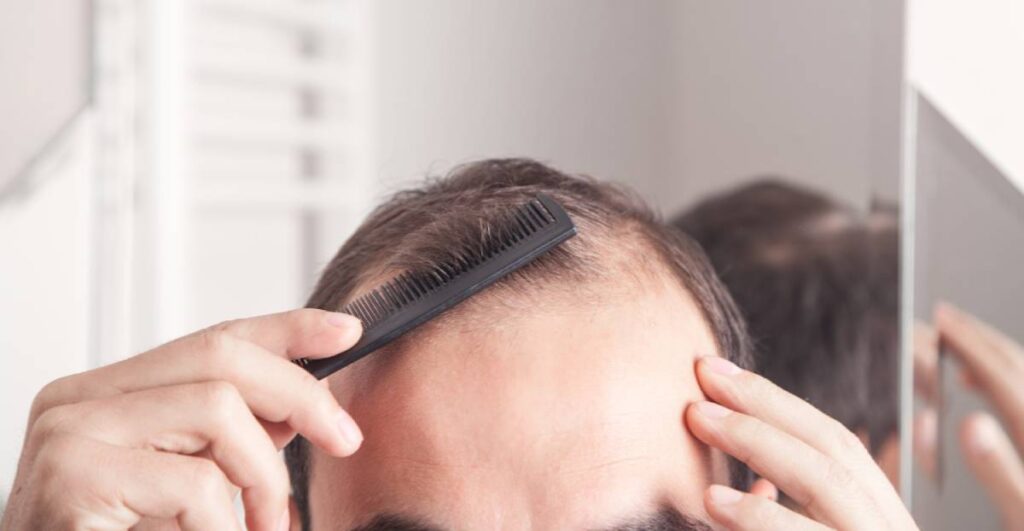Understanding Who the Best Candidates Are for Hair Transplantation
When considering hair transplantation, it is important to understand who the ideal candidates are for this procedure. Hair transplantation is generally recommended for individuals suffering from male or female pattern baldness, alopecia, or thinning hair that has not responded well to other treatments. The best candidates are those who have enough healthy hair follicles in the donor area, usually the back or sides of the scalp, to be transplanted to the thinning or bald areas. In general, individuals with realistic expectations, good overall health, and stabilized hair loss are the best candidates. Understanding the criteria for being a good candidate helps ensure the procedure’s success and reduces the likelihood of complications or unsatisfactory results.
The Importance of Stable Hair Loss in Candidates for Hair Transplantation
For hair transplantation to be successful, it is important that the hair loss has stabilized. Candidates for hair transplantation should have reached a point where the hair loss has slowed down or stopped. If a person is still actively losing hair, the transplant may not provide permanent results, as new hair loss could occur in untreated areas. Surgeons often recommend waiting until hair loss has stabilized before undergoing a transplant. In many cases, younger individuals may not be ideal candidates if their hair loss is still progressing. It’s essential to have a professional evaluation to determine if your hair loss is stable and to understand how the procedure will impact your long-term appearance.
The Role of Donor Hair in Determining Suitability for Hair Transplantation
One of the key factors in determining if a person is a suitable candidate for hair transplantation is the availability of donor hair. Hair transplantation involves taking healthy hair follicles from one area of the scalp (typically the back or sides) and transplanting them to areas where hair is thinning or absent. A good candidate should have sufficient donor hair that is healthy and thick enough to be transplanted successfully. If the donor area is too thin or the hair is not of good quality, the procedure may not yield satisfactory results. Therefore, individuals with dense, healthy hair in the donor area are more likely to benefit from the procedure.
Age Considerations for Hair Transplantation
Age plays an important role in determining if someone is a good candidate for hair transplantation. While there is no strict age limit, younger patients may not be ideal candidates if their hair loss is still in the early stages or is actively progressing. Surgeons typically recommend waiting until hair loss has stabilized, which can be difficult to predict in younger individuals. On the other hand, older patients whose hair loss has stabilized and who still have good donor hair are often great candidates for hair transplantation. Additionally, older patients may be more likely to have a clearer understanding of their hair loss patterns, making it easier to predict long-term results.
Health Considerations for Hair Transplantation Candidates
Good overall health is a crucial factor when determining if hair transplantation is right for you. Those considering the procedure should be free from underlying medical conditions that could interfere with the healing process. Conditions such as diabetes, autoimmune diseases, or circulatory problems may affect the outcome of the surgery and lead to complications. A healthy individual with a strong immune system and the ability to heal properly is more likely to experience a successful transplant. In addition, individuals who are not taking medications that interfere with hair growth, such as blood thinners, are better candidates for hair transplantation.
Psychological Factors and Realistic Expectations
In addition to physical factors, psychological readiness is another important consideration for candidates of hair transplantation. Individuals who are mentally prepared for the changes that come with the procedure are more likely to experience satisfaction with the results. It is essential for patients to have realistic expectations and understand that results take time. Full hair growth may not be visible for several months, and while the transplanted hair is permanent, ongoing hair loss in untreated areas may still occur. Surgeons often work with patients to help manage their expectations and provide a clear understanding of the procedure and its long-term effects. If a patient has unrealistic expectations, they may be disappointed with the outcome.
Choosing the Right Surgeon for Hair Transplantation
Choosing a skilled, experienced surgeon is one of the most important steps in ensuring a successful hair transplantation procedure. The best candidates for hair transplantation should carefully research and choose a qualified surgeon with a proven track record of successful procedures. A skilled surgeon will be able to assess your hair loss patterns, understand your goals, and provide you with realistic expectations. They will also use the most advanced techniques to ensure that the procedure is performed safely and effectively. Always ensure that the surgeon is certified and has positive patient reviews before proceeding with your hair transplant.
Conclusion
In conclusion, the best candidates for hair transplantation are individuals who have stable hair loss, sufficient donor hair, and are in good overall health. Age, psychological readiness, and realistic expectations also play significant roles in determining suitability for the procedure. It’s important to consult with an experienced surgeon to assess your specific needs and ensure that the procedure will provide the best possible results. With the right qualifications, hair transplantation can be a life-changing solution for those looking to restore their hair and regain confidence. By understanding the factors that determine candidacy, individuals can make an informed decision about whether this procedure is the right choice for them.
Frequently Asked Questions
-
- How do I know if I am a good candidate for hair transplantation?
- Good candidates typically have stable hair loss, sufficient donor hair, and realistic expectations. A consultation with a surgeon will help determine if you’re suitable for the procedure.
- Can younger people undergo hair transplantation?
- While there is no strict age limit, younger people whose hair loss is still progressing may not be ideal candidates. Surgeons often recommend waiting until hair loss has stabilized.
- How long does the recovery process take?
- Recovery typically takes about 7 to 10 days, with swelling and discomfort subsiding within a few days.
- Is hair transplantation permanent?
- Yes, the transplanted hair is permanent, although natural hair loss may continue in untreated areas.
- How many grafts do I need for a hair transplant?
- The number of grafts needed depends on the extent of your hair loss. On average, patients require 1,000 to 3,000 grafts.
- What risks are involved in hair transplantation?
- Risks include infection, scarring, and poor graft survival, though these are rare with experienced surgeons.
- Can I return to work after a hair transplant?
- Most patients return to work within a few days, though strenuous activities should be avoided for about a week.
- Will the results look natural?
- Yes, when performed by a skilled surgeon, hair transplantation results are natural-looking and blend seamlessly with existing hair.
- How long will it take to see the results of the transplant?
- Results typically begin to show within 3 to 4 months, with full results visible in 12 to 18 months.
- Can hair transplantation be done if I have a medical condition?
- It depends on the condition. Individuals with stable medical conditions are generally good candidates, but a medical consultation is necessary to assess suitability.
- How do I know if I am a good candidate for hair transplantation?












